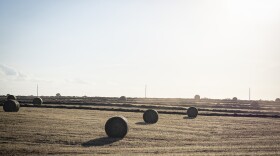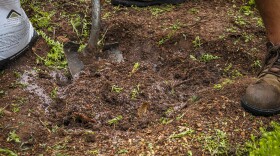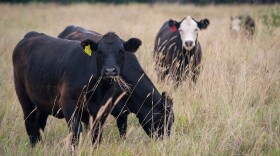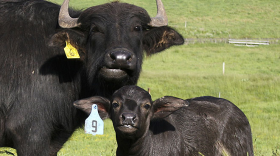-
Around 18% of Oklahoma's agricultural federal workforce left or lost their jobs in the first half of 2025. A U.S. Department of Agriculture report shows most of the workers took a deferred resignation deal.
-
In an effort to improve the state's soil health, the Oklahoma Conservation Commission is paying up to $40,000 to farmers and ranchers to employ regenerative agriculture techniques.
-
A recent survey shows farm income and borrowing power for crop producers are weak across the Great Plains, but the cattle industry has improved farm finances in some places, including Oklahoma.
-
A study led by Sen. Mary Boren (D-Norman) included representatives from the renewable energy industry, a nonprofit and Oklahoma State University.
-
Guymon's Mesa Water Project is expected to deliver its first drops to the city in October of next year.
-
The U.S. Department of Health and Human Services on Sunday reported the first human case in the United States of travel-associated New World screwworm, a flesh-eating parasite, from an outbreak-affected country.
-
Oklahoma officials say a Jones producer was killed on July 11 after sustaining injuries from two water buffaloes he bought the day before.
-
The U.S. Department of Agriculture has released a plan to prevent the spread of the New World screwworm this week.
-
The Oklahoma Corporation Commission, which oversees utilities and the oil and gas industry, will be challenged with historically high electricity demand in the coming years, they said.
-
Detections of new world screwworms, a flesh-eating maggot, have grown in recent years in South America. As the federal government works to prevent the pests' spread, Oklahoma officials are rolling out a response.

Play Live Radio
Next Up:
0:00
0:00
Available On Air Stations










